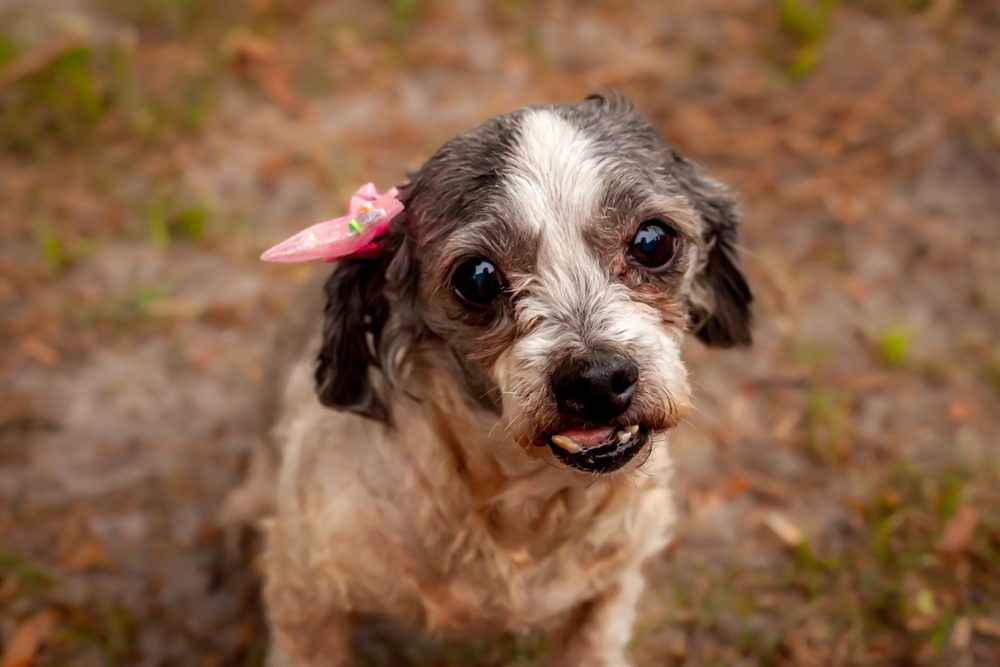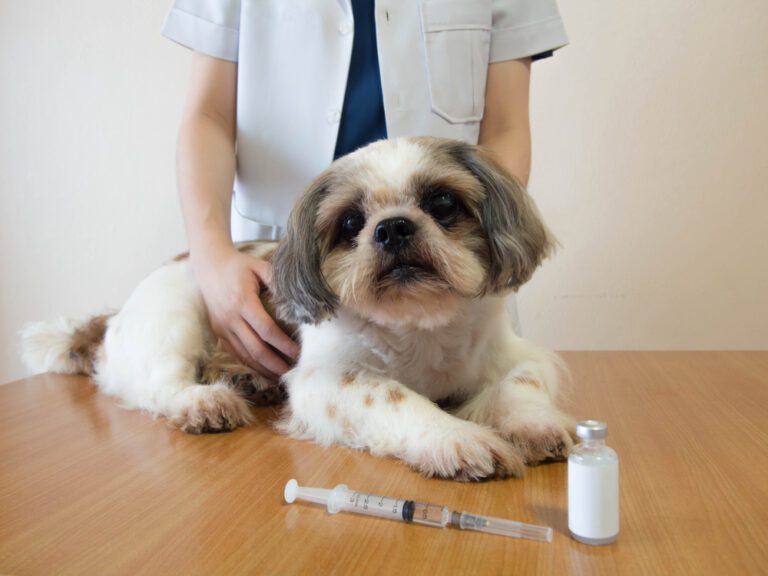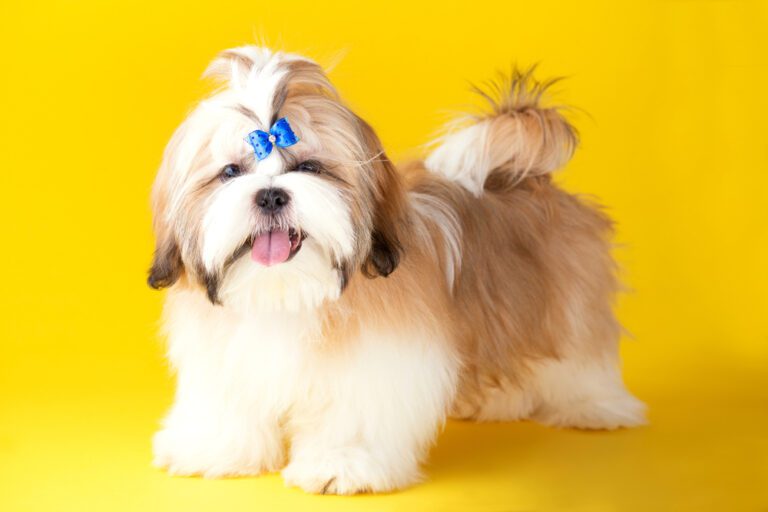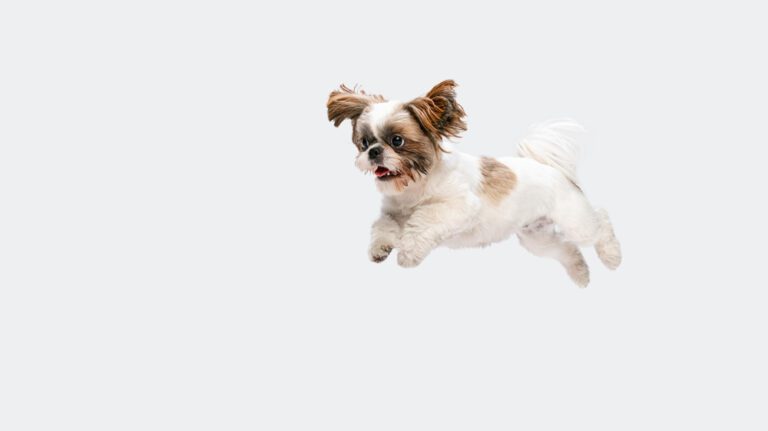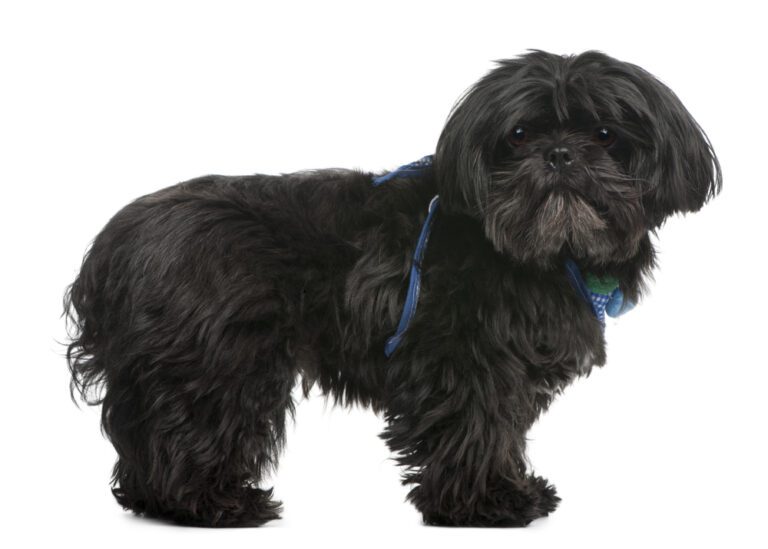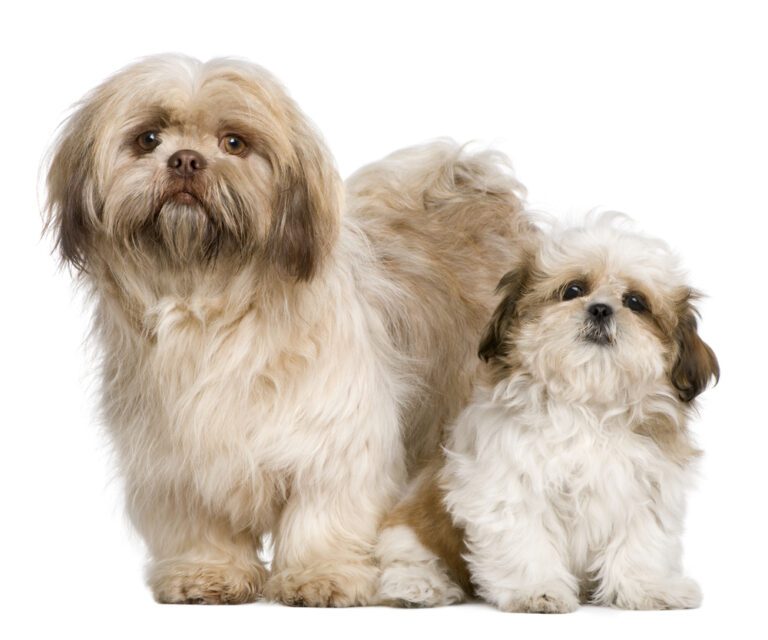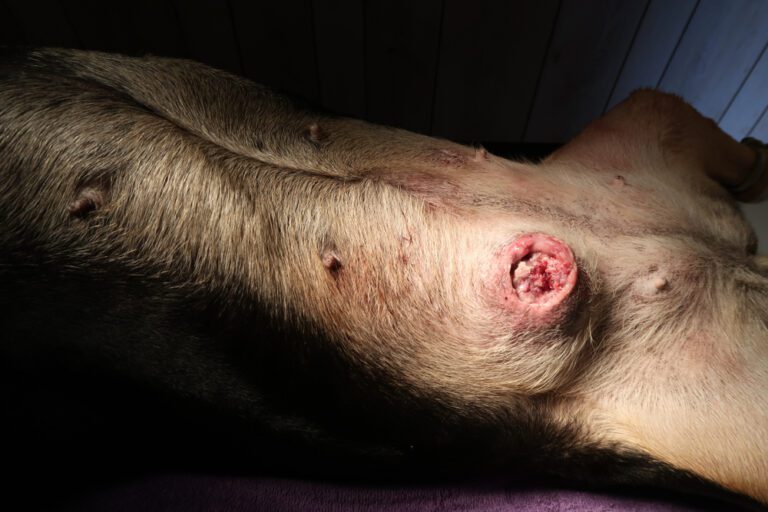A Guide to Caring for Your Old Shih Tzu
Are you the proud owner of an old Shih Tzu? If so, you know how important it is to keep your furry friend happy and healthy in their golden years. But caring for an aging Shih Tzu can come with its own set of challenges. That’s why we’ve compiled this comprehensive guide to help you navigate this stage of your pet’s life quickly and confidently.
In this article, we will share essential tips and advice to ensure your old Shih Tzu enjoys a happy and fulfilling life. From nutrition and exercise to grooming and medical care, we’ll cover everything you need to know to keep your beloved companion in the best possible shape. Whether you’re a first-time Shih Tzu owner or have had these adorable dogs for years, this guide will undoubtedly provide valuable insights to enhance your bond with your furry friend.
Let’s embark on this journey together and discover how to give your old Shih Tzu the care they deserve for a joyful and healthy life.
Understanding the Aging Process in Shih Tzus
As your Shih Tzu grows older, their body undergoes various changes. Understanding these changes will help you provide the appropriate care for your furry friend. One of the most noticeable changes in aging Shih Tzus is decreased energy levels. Your once lively and playful companion may start to slow down and prefer a more relaxed lifestyle. Joint stiffness and arthritis are standard in senior Shih Tzus, so it’s essential to provide them with soft bedding and consider adding supplements to their diet to support joint health.
Older Shih Tzus may also experience changes in their eyesight and hearing. Regular visits to the vet can help monitor any deterioration in these senses and provide necessary treatment. Additionally, their metabolism may slow down, making weight management a crucial aspect of their care. Be mindful of their food intake, ensuring they receive a balanced diet to prevent obesity.
Remember, each Shih Tzu is unique, and the aging process can vary from dog to dog. By staying attuned to your pet’s needs and consulting with your vet, you can provide the best possible care during their golden years.
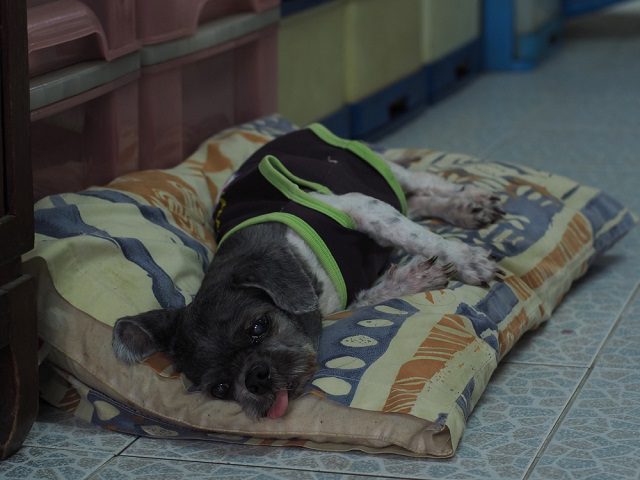
Common Health Issues in Older Shih Tzus
As your Shih Tzu ages, they become more susceptible to specific health conditions. Knowing these common issues will help you detect them early and seek appropriate medical attention. One of the most prevalent health concerns in senior Shih Tzus is dental disease. Neglected oral hygiene can lead to tooth decay, gum disease, and other dental problems. Regular brushing and professional cleanings can help prevent these issues and keep your furry friend’s teeth healthy.
Another common health issue in older Shih Tzus is heart disease. The breed is predisposed to certain heart conditions, such as mitral valve disease, which can cause heart murmurs and other complications. Regular check-ups with your vet, including listening to your dog’s heart, can help monitor their cardiovascular health.
Cataracts, a clouding of the eye lens, are also common in aging Shih Tzus. This can lead to vision impairment or even blindness. Prompt veterinary care is crucial if you notice any changes in your dog’s eyes, as early intervention can often prevent further deterioration.
These are just a few examples of the health issues that older Shih Tzus may face. Regular vet check-ups and open communication with your veterinarian are essential for early detection and effective management of these conditions.
Common Health Issues in Senior Shih Tzus and How to Address Them
Senior Shih Tzus are prone to several common health issues that require special attention and care. By being aware of these conditions and their symptoms, you can take proactive steps to address them and maintain your furry friend’s well-being.
1. Joint Problems
In the senior years, arthritis and joint stiffness can compromise the mobility and comfort of Shih Tzus. To alleviate these issues, providing joint supplements, maintaining an optimal weight, and incorporating gentle exercises can go a long way. Additionally, ensuring they have soft bedding can offer comfort and support.
2. Dental Issues
One common health issue in senior Shih Tzus is dental disease. Neglected dental hygiene can lead to tooth decay, gum disease, and other oral health problems. Regular brushing and professional dental cleanings are essential for preventing these issues. Moreover, offering dental chews or toys can minimize the accumulation of plaque and tartar.
3. Vision and Hearing Loss
Aging Shih Tzus may experience a decline in both vision and hearing. Creating a familiar environment, avoiding abrupt changes, and ensuring clear pathways can assist visually impaired dogs. For those with hearing loss, relying on visual cues and hand signals becomes crucial.
4. Cognitive Dysfunction
Similar to dementia in humans, cognitive decline can affect older Shih Tzus. Supporting cognitive health involves providing mental stimulation through toys and puzzles, maintaining a consistent routine, and creating a secure and comfortable living environment.
5. Weight Management
Decreased activity levels in senior dogs can lead to obesity concerns. Managing their weight involves adjusting their diet to meet lower energy requirements, engaging in regular low-impact exercises, and monitoring their food intake.
6. Kidney and Liver Function
Senior dogs may experience a decline in kidney and liver function. Prioritizing regular veterinary check-ups, implementing a balanced and senior-friendly diet, and ensuring proper hydration is crucial for supporting kidney and liver health.
7. Heart Disease
Heart disease is another prevalent concern in aging Shih Tzus. Mitral valve disease, which causes the weakening of the heart valves, is particularly common in the breed. Regular veterinary check-ups, including listening to your dog’s heart, can help monitor their cardiovascular health. Your vet may recommend medications and lifestyle changes to manage heart disease in your senior Shih Tzu.
8. Skin and Coat Issues
Dry skin, a dull coat, and lumps or bumps are common skin issues in senior Shih Tzus. Providing a well-balanced diet rich in omega-3 fatty acids, maintaining regular grooming practices, and monitoring the skin can aid in the early detection and management of potential problems.
Ensuring regular veterinary check-ups is paramount for addressing these issues promptly and tailoring a comprehensive care plan to meet the individual needs of aging Shih Tzus. Consistent attention to their diet, exercise routine, and overall well-being is crucial in fostering a fulfilling and comfortable senior life for these cherished companions.
Creating a Comfortable and Safe Environment for Your Old Shih Tzu
As your Shih Tzu enters their senior years, it’s essential to create an environment that caters to their changing needs. A comfortable and safe space will ensure your furry friend feels secure and content. Start by offering soft and supportive bedding that is easy for your aging Shih Tzu to access. Orthopedic beds can provide additional relief for dogs with joint stiffness or arthritis.
Consider the layout of your home and make any necessary adjustments to accommodate your senior Shih Tzu. If they have difficulty climbing stairs, install baby gates or ramps to prevent accidents. Keep their food and water bowls at an appropriate height to minimize strain on their neck and back. Avoid sudden changes in flooring surfaces, as these can be challenging for dogs with mobility issues.
To prevent slips and falls, place non-slip mats or rugs in areas where your Shih Tzu spends most of their time. This will provide them with stability and reduce the risk of injury. Finally, ensure your home is free from hazards such as loose wires, toxic plants, and small objects that could be swallowed.
Creating a comfortable and safe environment, you’ll be helping your old Shih Tzu navigate their surroundings quickly and confidently.
Maintaining a Healthy Diet for Your Aging Shih Tzu
Proper nutrition is crucial for the overall health and well-being of your aging Shih Tzu. As your furry friend enters their senior years, their dietary needs may change. It’s essential to provide a balanced and age-appropriate diet to support their aging body.
Senior Shih Tzus often requires fewer calories due to decreased activity levels and slower metabolism. However, their nutritional needs remain high, especially concerning essential nutrients such as proteins, fats, vitamins, and minerals. Look for food specifically formulated for senior dogs, as these typically contain the appropriate balance of nutrients to support their health.
To support joint health and mobility, consider adding supplements to your old Shih Tzu’s diet, such as glucosamine and chondroitin. Omega-3 fatty acids can also be beneficial for their coat and skin health. Before starting any supplements, consult with your vet to ensure they are suitable for your furry friend.
It’s essential to monitor your senior Shih Tzu’s weight and adjust their food intake accordingly. Obesity can lead to various health problems and strain their joints and organs unnecessarily. Your vet can guide portion sizes and feeding frequency to maintain a healthy weight.
Always make fresh water available for your aging Shih Tzu, as hydration is essential for their overall health. Additionally, be mindful of any changes in their eating habits, as a loss of appetite can indicate an underlying health issue.
By providing a balanced and nutritious diet, you can help your old Shih Tzu maintain their health and vitality.
Exercise and Mental Stimulation for an Old Shih Tzu
While an aging Shih Tzu may not have the same energy levels as before, regular exercise and mental stimulation are essential for their well-being. Tailor their exercise routine to their individual needs and abilities, considering any health conditions they may have.
Short walks, gentle play sessions, and interactive toys can help keep your senior Shih Tzu physically and mentally engaged. However, be mindful not to overexert or push them beyond their limits. Pay attention to their body language and signs of fatigue, and adjust the intensity and duration of exercise accordingly.
Mental stimulation is as important as physical activity for an old Shih Tzu. Engage their mind with puzzle toys, treat-dispensing games, and obedience training sessions. These activities not only provide mental stimulation but also strengthen the bond between you and your furry friend.
Remember that senior Shih Tzus may require more frequent breaks during exercise or mental stimulation sessions. Be patient and understanding of their limitations, and always prioritize their comfort and safety.
By incorporating regular exercise and mental stimulation into your old Shih Tzu’s routine, you can help them maintain their physical and cognitive abilities, leading to a happier and healthier life.
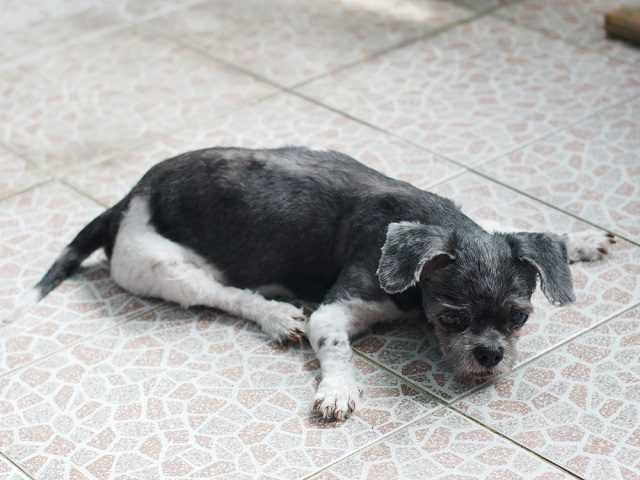
Grooming and Hygiene Tips for Senior Shih Tzus
Proper grooming is essential for the well-being and comfort of your aging Shih Tzu. As they age, their grooming needs may change, requiring some adjustments to your routine. Regular grooming sessions not only keep your pet looking their best but also allow you to monitor their overall health.
Brush your senior Shih Tzu’s coat regularly to prevent matting and tangling. Their coats may become thinner and more prone to dryness as they age. Use a soft brush or comb to gently remove loose hair and distribute natural oils, promoting a healthy and shiny coat. If your Shih Tzu has trouble standing or sitting for extended periods, consider using a grooming table or other supportive surfaces to make the process more comfortable for both of you.
Pay extra attention to your old Shih Tzu’s dental hygiene. Regularly use a toothbrush and toothpaste designed for dogs to clean their teeth. Dental disease can lead to pain, infections, and other health issues, so it’s essential to establish a dental care routine early on.
Senior Shih Tzus may also require more frequent nail trims, as their nails grow faster and thicker with age. Trim their nails carefully, avoiding the quick, which can cause bleeding and discomfort. If you are uncertain about safely trimming their nails, seek advice from a professional groomer or consult your veterinarian.
Lastly, keep your old Shih Tzu’s ears clean and infection-free. Regularly inspect their ears for signs of redness, discharge, or any unpleasant odor. Use a dog-specific ear cleaner and gently wipe the outer part of their ears with a cotton ball or soft cloth. If you notice any signs of infection or discomfort, consult your vet for appropriate treatment.
By maintaining a regular grooming routine and paying attention to your senior Shih Tzu’s hygiene, you can keep them looking and feeling their best.
Regular Vet Check-ups and Preventive Care for Aging Shih Tzus
Regular veterinary check-ups are crucial for the overall health and well-being of your aging Shih Tzu. Senior dogs require more frequent visits to monitor their health and address any age-related concerns. Your vet can guide preventive care measures and detect potential health issues early on.
During check-ups, your vet will perform a thorough physical examination, including checking your old Shih Tzu’s heart, lungs, teeth, and other vital areas. They may recommend blood tests, X-rays, or other diagnostic procedures to assess their overall health and detect any underlying conditions.
Vaccinations are also necessary, to protect your senior Shih Tzu from common diseases and infections. Discuss with your vet which vaccinations are necessary based on their lifestyle and potential disease exposure.
Parasite prevention is another critical aspect of preventive care. Senior dogs can be more susceptible to parasites such as fleas, ticks, and heartworms. Regular use of appropriate preventive medications, as recommended by your vet, can help protect your furry friend from these pests and the diseases they carry.
Regular vet check-ups and preventive care measures are essential for maintaining your senior Shih Tzu’s health and ensuring a higher quality of life in their golden years.
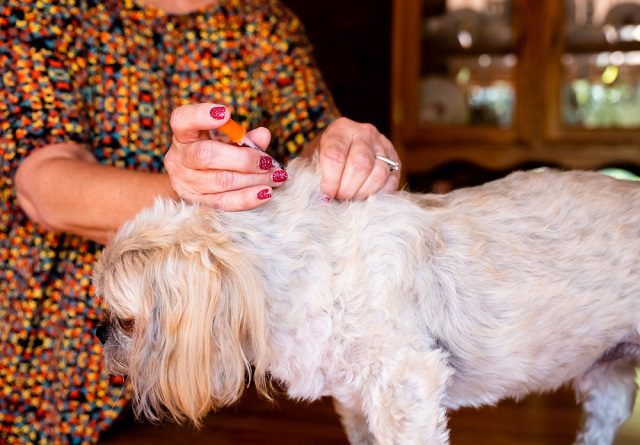
Dealing with Behavioral Changes in Old Shih Tzus
As your Shih Tzu ages, you may notice some behavioral changes. These changes can range from increased anxiety and restlessness to decreased interest in activities they once enjoyed. Understanding and addressing these changes can help improve your furry friend’s quality of life.
Older Shih Tzus may become more anxious or clingy as they experience changes in their physical and mental abilities. Provide them with a quiet and comfortable space to retreat when they feel overwhelmed. Create a predictable routine to help them feel secure and reduce anxiety.
Engage your senior Shih Tzu in activities that stimulate their mind and provide a sense of purpose. Puzzle toys, obedience training, and interactive play sessions can help keep their mind sharp and prevent boredom. However, do not overwhelm them with too much stimulation or new experiences.
Be patient and understanding with any accidents or changes in bathroom habits. Older Shih Tzus may experience bladder control issues or difficulty holding urine for extended periods. Provide easy access to potty areas and consider using doggy diapers or pads if necessary. Consult with your vet if you notice a sudden change in their bathroom habits, as it could be a sign of a urinary tract infection or other underlying health issue.
If you notice significant changes in your old Shih Tzu’s behavior, such as aggression, confusion, or disorientation, consult with your vet. These changes could be a symptom of an underlying medical condition or cognitive decline. Your vet can help determine the cause and recommend appropriate treatment or management strategies.
By understanding and addressing behavioral changes in your aging Shih Tzu, you can provide the support and care they need to lead a happy and fulfilling life.
Conclusion
As your Shih Tzu enters their golden years, it’s essential to adapt their care routine to meet their changing needs. By understanding the aging process, staying vigilant about common health issues, and providing a comfortable and safe environment, you can ensure your furry friend’s well-being.
Maintaining a healthy diet, incorporating regular exercise and mental stimulation, and practicing proper grooming and hygiene are essential for keeping your old Shih Tzu happy and healthy. Regular vet check-ups and preventive care measures, along with addressing behavioral changes, will help detect and manage any age-related concerns.
Remember, your old Shih Tzu has been a loyal and loving companion throughout their life. By providing them with the care they deserve in their senior years, you can strengthen your bond and enjoy many more joyful moments together. Cherish this time with your furry friend and make every effort to ensure their golden years are filled with love, comfort, and happiness.

